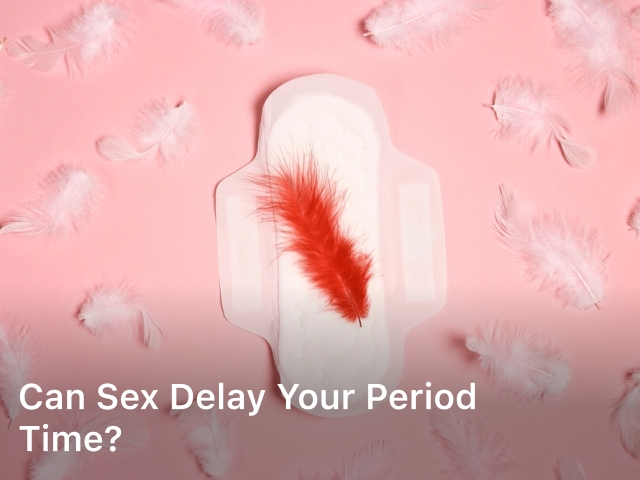Can Sex Delay Your Period Time?

fitguideguru.com. Can Sex Delay Your Period Time? – Discover whether engaging in sexual activity can potentially delay your period. We explore the connection between sex and menstrual cycles, backed by expert insights and information.
Many women have pondered the question: Can sex delay your period time? It’s a topic surrounded by myths and misconceptions. In this comprehensive article, we delve into the relationship between sexual activity and menstrual cycles. Let’s shed light on this often-misunderstood subject, backed by expert insights and information.
Can Sex Delay Your Period Time?
The notion that sexual activity can influence the timing of your period is a common concern among women. However, the evidence supporting a direct link between the two is limited. While there’s no concrete scientific consensus, let’s explore the various ways in which sex might affect your menstrual cycle.
The Menstrual Cycle and Hormonal Balance
The menstrual cycle is a complex interplay of hormones, including estrogen and progesterone. These hormones regulate ovulation and prepare the uterus for potential pregnancy.
Engaging in sexual activity doesn’t typically disrupt this delicate hormonal balance. While sexual intercourse can trigger uterine contractions, they are generally mild and short-lived.

Ovulation and Pregnancy
Ovulation, the release of an egg from the ovary, marks the fertile window. Having sex during this time increases the chances of conception. If pregnancy occurs, it can, in fact, delay your period as the body focuses on supporting the developing embryo.
Stress and Delayed Periods
Stress is known to impact the menstrual cycle. High stress levels can lead to hormonal imbalances that might affect ovulation and menstruation. Engaging in sexual activity can have the opposite effect by promoting relaxation and reducing stress. Thus, sex might indirectly contribute to more regular periods.
Physical Activity and Menstrual Flow
Some believe that physical activity after sex could influence the direction of menstrual flow, potentially leading to a perceived delay. However, there is no scientific consensus to support this claim. Menstrual flow is determined by the shedding of the uterine lining and is not significantly affected by external factors.
Cervical Stimulation and Uterine Contractions
Sexual activity can lead to cervical stimulation and uterine contractions. While these contractions are unlikely to significantly delay your period, they might cause minor discomfort for some individuals.
FAQs about Sex and Menstrual Cycles
Q: Can having sex make my period come faster?
A: There is no conclusive evidence that sex can accelerate the arrival of your period. The timing of your period is primarily influenced by hormonal fluctuations.
Q: Should I be concerned if my period is late after having sex?
A: While it’s natural to feel concerned, remember that various factors, including stress, travel, and changes in routine, can impact your menstrual cycle. If you suspect pregnancy, consider taking a pregnancy test.
Q: Can orgasms affect my period’s timing?
A: Orgasms can lead to uterine contractions, which might cause minor changes in menstrual flow. However, these changes are unlikely to result in a significant delay.
Q: Can birth control pills influence the relationship between sex and periods?
A: Birth control pills are designed to regulate hormonal levels, often leading to more predictable and lighter periods. If you’re on birth control, the connection between sex and period timing may be less pronounced.
Q: Is it safe to have sex during menstruation?
A: Yes, it is generally safe to have sex during menstruation. However, some individuals might prefer to abstain due to discomfort or personal preferences.
Q: Can pregnancy impact my period’s regularity?
A: Yes, pregnancy can cause a missed period. If you suspect pregnancy, consult a healthcare professional and consider taking a pregnancy test.
Conclusion
In conclusion, the relationship between sexual activity and the timing of your period is nuanced. While there is no substantial evidence to suggest that sex directly delays your period, factors like stress, pregnancy, and hormonal fluctuations can play a role in menstrual irregularities. It’s essential to approach this topic with accurate information and open communication, recognizing that individual experiences may vary.





